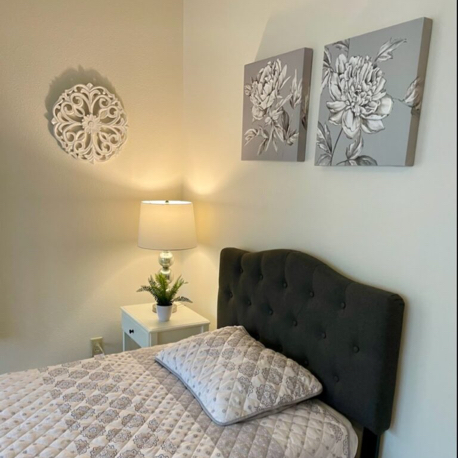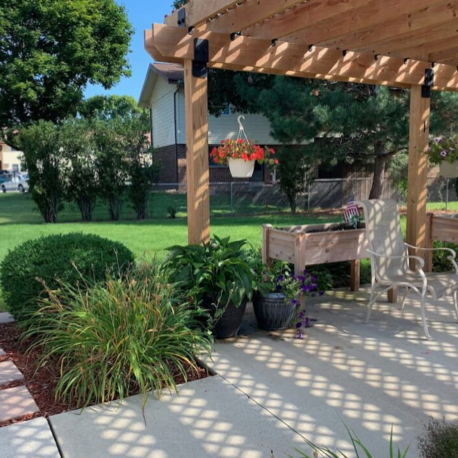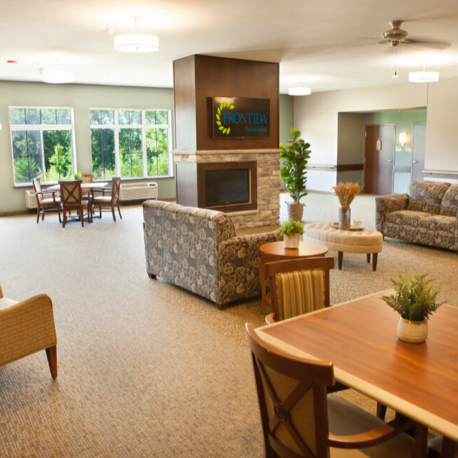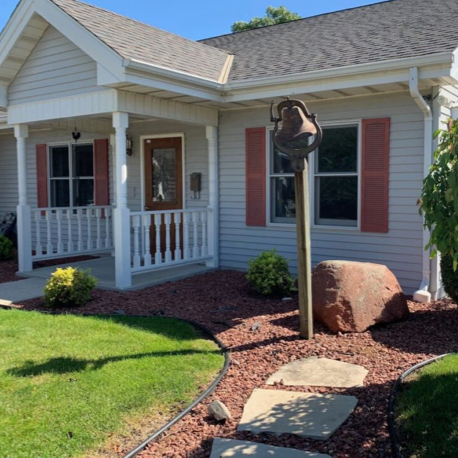At Frontida Assisted Living, we understand that finding the right memory care community for your loved one is a significant decision. A person’s living environment directly impacts their physical health, cognitive function, and emotional well-being.
Selecting a community that meets your loved one’s individual needs can make all the difference in their quality of life. Taking the time to explore different options and understanding what to look for can help ease their transition to memory care.
Understanding Memory Care
Memory care communities provide specialized long-term care for people experiencing cognitive decline due to conditions such as Alzheimer’s, Dementia, or Parkinson’s. These communities offer a structured environment equipped with staff who focus on safety, daily engagement, and personalized care plans.
Unlike traditional senior living options, memory care emphasizes therapies and activities that help maintain cognitive function and emotional stability while also ensuring residents receive the medical and personal support they need.
For residents, memory care provides a secure environment where they can engage in meaningful activities while receiving assistance tailored to their situation. For families, memory care offers peace of mind and the knowledge that their loved ones are supported by compassionate team members in a setting designed to enhance their well-being.
Health & Wellness Support
The health needs of your loved one should be a top priority when selecting a memory care community. Memory care communities provide comprehensive medical oversight, including medication management, health monitoring, and access to specialized care.
In addition to medical attention, these communities focus on emotional, social, and cognitive well-being by way of structured programs and therapies that enhance residents’ overall quality of life. A holistic approach to health can positively impact a resident’s day-to-day experience, creating a nurturing and supportive environment.
Expertise & Training of Staff
A well-trained and experienced care team is essential in providing effective memory care. Staff should have specialized training in dementia care and be knowledgeable about how to assist people with cognitive decline. Ongoing education helps caregivers stay up to date with evolving care techniques, ensuring residents receive the most appropriate and compassionate support.
When evaluating a community, it’s important to ask about staff training programs and caregiver-to-resident ratios in order to better understand the level of care provided. Additionally, speaking with current caregivers can provide insight into their level of dedication and experience, helping families feel confident in their choice.
Safety & Security Features
Memory care communities are designed with safety in mind. Cognitive decline can increase the risk of wandering and falls, making a secure and accessible environment crucial. Thoughtful design elements such as open floor plans, mobility-friendly layouts, and enclosed outdoor spaces help promote independence while reducing risks.
Additionally, continuous staff monitoring and safety protocols provide an added layer of protection, so that residents are safe at all times. Many communities also integrate technology, such as emergency response systems and tracking devices to further enhance security while allowing residents to maintain a level of autonomy.
Activities & Daily Engagement

One of the defining characteristics of memory care is its focus on structured activities that support cognitive function and social interaction. Engaging programs, such as music therapy, art therapy, fitness classes, and memory-stimulating exercises, provide meaningful experiences that improve residents’ well-being.
Social events also play a crucial role in reducing isolation and fostering a sense of community. A strong memory care program should offer a variety of activities tailored to residents’ abilities and interests. Such activities not only provide mental stimulation but also bring joy and purpose to residents’ daily lives.
Family Involvement & Support
Maintaining family connections is essential in memory care. A supportive community encourages family involvement through regular communication, care planning, and open visitation policies.
When exploring memory care options, consider how the community enables family engagement and whether they offer resources for caregivers. Some communities also provide support groups and educational sessions to help families navigate the challenges of memory loss, thereby fostering a sense of shared understanding and emotional support.
It’s also important to consider how close a community is to you and your loved one’s other family members. Your loved one will benefit from regular visits!
Financial Considerations
The cost of memory care varies based on the level of support and the services provided. Understanding the pricing structure of a community can help families plan effectively.
When discussing financial aspects, ask about what’s included in the base cost and whether additional fees apply for specialized services. Some communities offer financial guidance and can provide information on insurance coverage, government assistance programs, or other funding options that may be available to help offset costs.
Exploring financial aid opportunities early on can alleviate stress and help families focus on finding great care for their loved one.
Making an Informed Decision
Selecting the right memory care community requires time, research, and thoughtful consideration. Visiting multiple communities, speaking with staff, and observing daily life can provide valuable insights into the environment and level of care provided. Involving your loved one in the decision-making process, when possible, can also help make the transition smoother and more comfortable for them.
A memory care community should feel like home—a place where your loved one is safe, supported, and engaged in meaningful activities. By evaluating health support, staff qualifications, safety measures, activity programs, family involvement, and financial factors, you can make an informed choice that prioritizes their well-being and enhances their quality of life.
Taking a proactive approach and asking detailed questions can give families confidence that they are making the right decision, providing reassurance during an often emotional process. We encourage you to put our community on your list of considerations! Tour our facilities to see if Frontida Assisted Living could be a good fit for your family’s needs.







